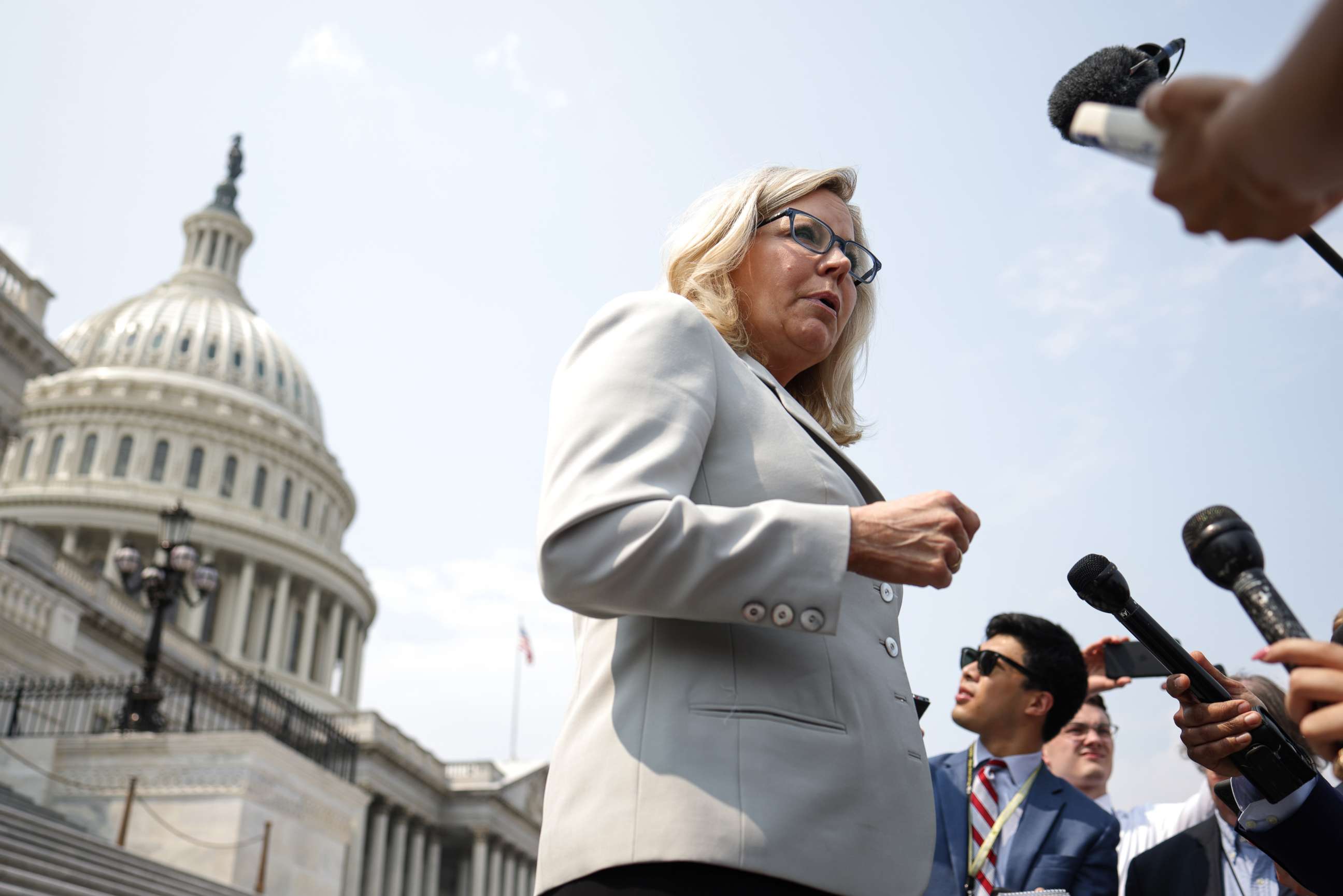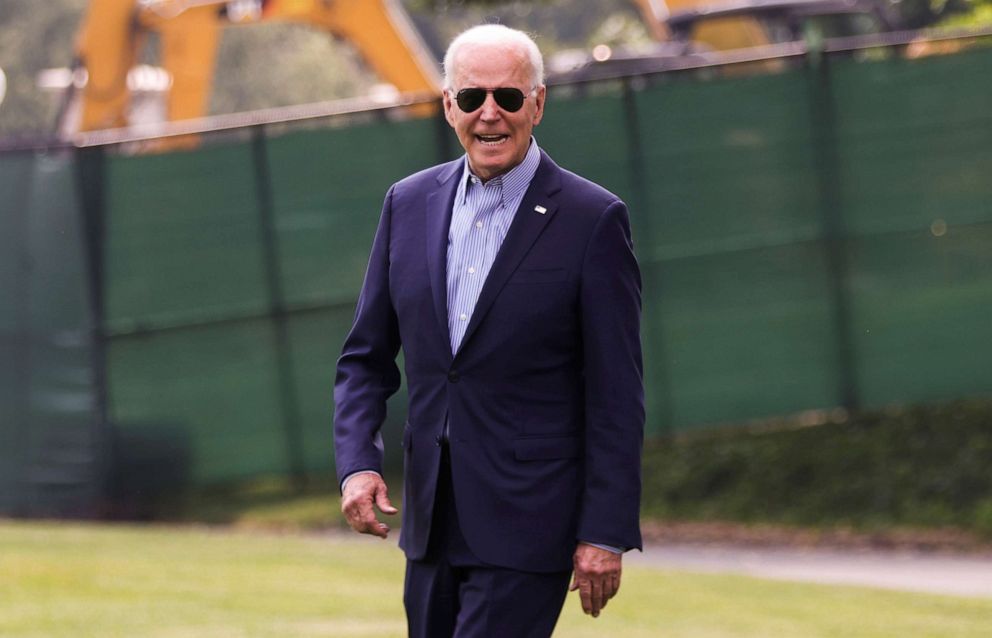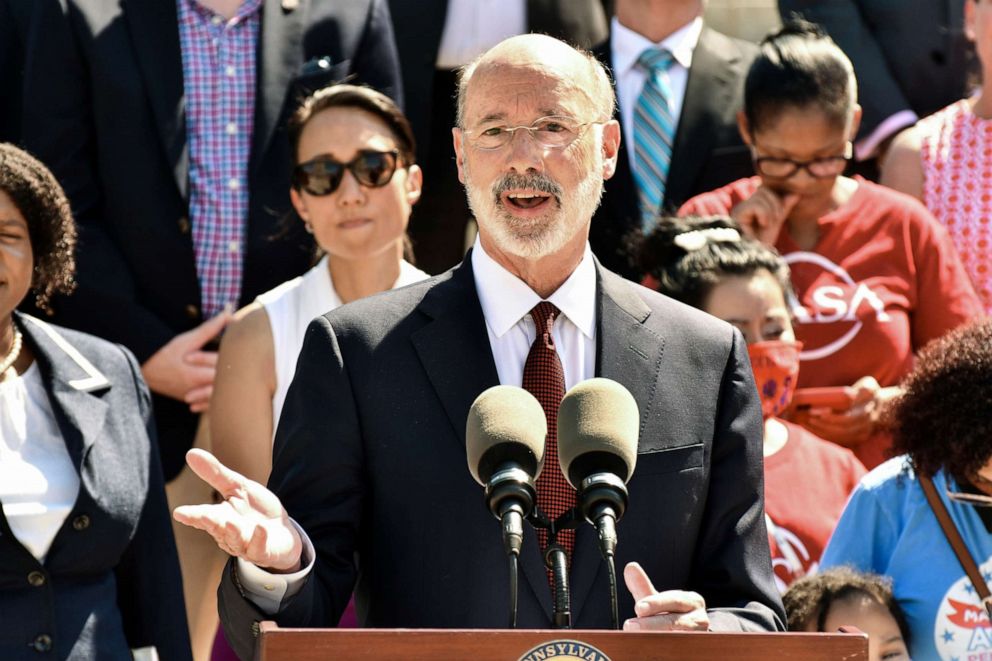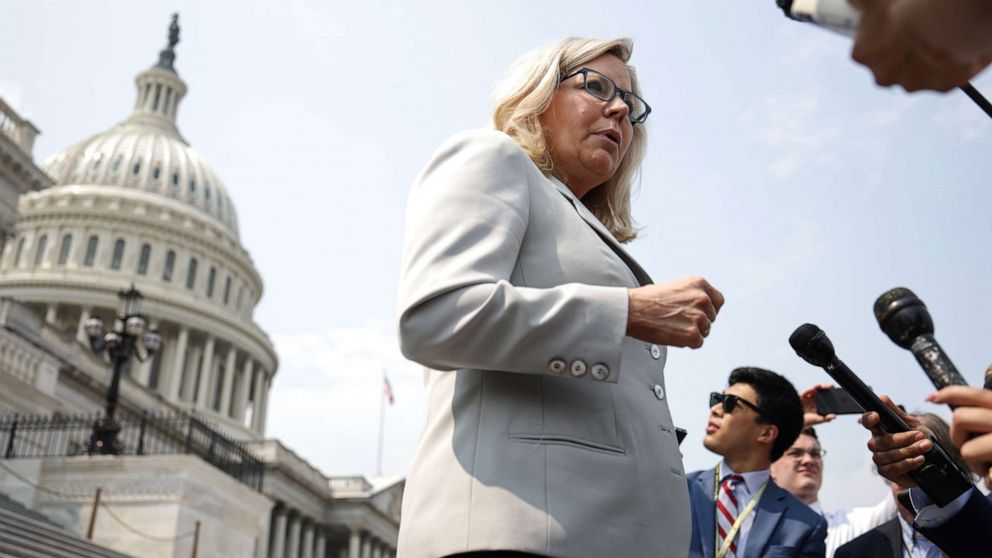Liz Cheney positioned as linchpin for credibility of Jan. 6 findings: The Note
The TAKE with Rick Klein
The talk after Wednesday's flurry of activity around Jan. 6 investigations was about separate partisan inquiries covering the same subject -- a subject leaders of the two parties don't see, or don't claim to see, the same way at all.
Then there's Rep. Liz Cheney. Cheney, R-Wyo., is now perhaps the only person standing in the way of final Jan. 6 takeaways devolving into wearying and meaningless "both sides-ism."
Cheney's decision to stay on the House select committee, and even back Speaker Nancy Pelosi's rejection of two Republican members who were tapped to serve on it, is about more than a single vote, even a vote that belongs to a former member of GOP leadership.
She is also calling out her own party leader -- the man favored to become the next House speaker if Republicans recapture the majority -- as offering "disingenuous" rhetoric that should disqualify him from taking over any such job.
"There must be an investigation that is nonpartisan, that is sober, that is serious, that gets to the facts wherever they may lead," Cheney told reporters.

House Minority Leader Kevin McCarthy outlined questions about security shortcomings at the Capitol that made clear Republicans were looking for an escape that has them aiming at Pelosi in whatever separate probe they launch.
McCarthy and his allies also say the House-approved committee is designed to embarrass former President Donald Trump and his supporters. Trump, who months ago committed to booting Cheney out of office next year, would readily agree.
But when the select committee holds its first hearing on Tuesday, Cheney will be there. As she explores ways to make sure her presence is felt, that fact alone will give an extra dose of credibility -- even bipartisanship -- to the endeavor.
The RUNDOWN with Averi Harper
The White House is changing its tune on COVID-19 procedures.
The White House will now announce any official who tests positive for COVID-19 if they have had close contact with the the president, vice president, first lady or the second gentleman.
"An email from our COVID-19 operations protocol team has been sent to White House staff informing them of the official policy -- that if you are in close contact with a principal, and test positive for COVID 19, your case will be disclosed to press along with any other relevant details," said White House press secretary Jen Psaki. "We will share the name of the staffer if that individual agrees to do so; of course, we respect their privacy."

Previously, White House officials said they would only announce cases of "commissioned officers," or senior staff with "assistant to the President" in their title.
The marked difference came after Psaki confirmed a breakthrough case of the coronavirus in the White House.
Officials have not announced any changes to COVID-19 measures like testing or reinstating masking, but new cases at the White House make the "independence" from COVID-19 that Biden hoped would arrive by July 4 feel even more elusive.
The TIP with Alisa Wiersema
The outlook on what will happen with the national push for federal voting rights legislation is still unclear, but the issue of voter ID requirements remains a fixture in debates across state legislatures.
In a memo circulated Wednesday, Pennsylvania state Rep. Seth Grove -- who also serves as the chairman of the Pennsylvania House State Government Committee -- said he plans to reintroduce his state's voting bill, H.B. 1300, which Democrat Gov. Tom Wolf vetoed earlier this month. Grove pegs his move on a Philadelphia Inquirer report that quotes Wolf indicating support for voter ID rules, despite previously citing such measures as nonstarters for advancing H.B. 1300.

The Pennsylvania governor is the latest of several high-profile Democrats to lean into more nuanced positions on voter ID laws. Sen. Joe Manchin included voter ID requirements in his voting legislation compromise last month and was promptly backed by voting rights advocate Stacey Abrams.
Wolf previously voiced support for a handful of other provisions originally outlined in H.B. 1300, but it remains to be seen whether he will be open to renegotiating the bill after already vetoing it.
THE PLAYLIST
ABC News' "Start Here" podcast. Thursday morning's episode features ABC News congressional correspondent Rachel Scott, who explains why House Minority leader Kevin McCarthy is threatening to pull all his Republican nominees from the select committee formed to investigate the Jan. 6 insurrection. ABC News senior investigative reporter Aaron Katersky tells us about the fines four drug companies will have to pay as part of a settlement over opioid deaths. And freelance journalist Emily Johnson tells us about her trip to a refugee camp in Tigray. http://apple.co/2HPocUL
WHAT YOU NEED TO KNOW TODAY
Download the ABC News app and select "The Note" as an item of interest to receive the day's sharpest political analysis.
The Note is a daily ABC News feature that highlights the key political moments of the day ahead. Please check back tomorrow for the latest.




